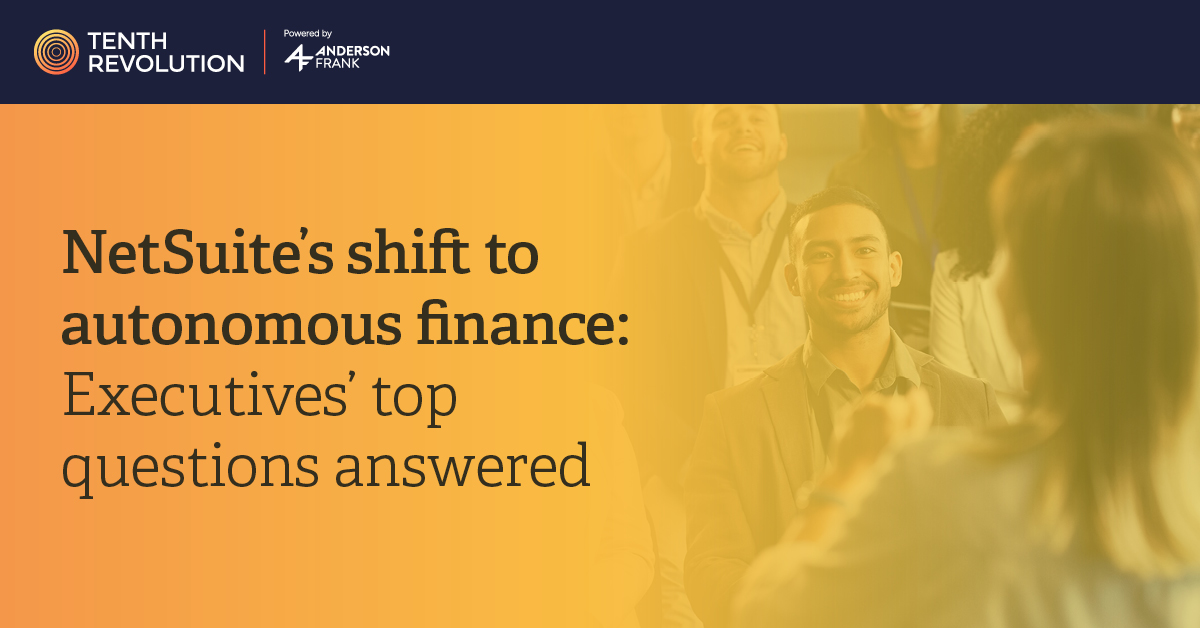
Generative AI has moved way past being a sidelined experiment.
For NetSuite users, tools like Text Enhance and Bill Capture are being embedded directly into core financial workflows, moving the finance function toward greater autonomy. This evolution is already helping organizations reduce manual effort, accelerate the period close, and strengthen decision-making.
Finance leaders often ask the same set of questions when evaluating these new capabilities. Here are the answers that matter most.
How does generative AI fit into everyday finance work?
Generative AI in NetSuite is not about abstract experimentation. It is designed to streamline tasks that finance teams perform every day. For example, Text Enhance can draft commentary for management reports or customer invoices, while Bill Capture uses OCR and AI to populate vendor invoices automatically.
The result is less time spent on manual input and more time available for validation and strategic oversight. Executives can think of it as AI acting as a junior analyst or administrator, handling the first draft of routine work.
Anderson Frank provides NetSuite experts who can help organizations embed these AI-driven features into daily workflows, ensuring faster adoption and stronger ROI.
What does “autonomous finance” actually mean?
Autonomous finance refers to workflows that can execute with minimal human intervention. In NetSuite, this includes automated invoice processing, AI-powered payment matching, and predictive forecasting during the close process.
For example, an accounts payable team could set rules in Bill Capture so invoices above a threshold are automatically routed for approval. Once approved, the system schedules payment runs in alignment with cash flow policies. Human review remains important, but the process is faster and less error-prone.
Can these tools accelerate the month-end close?
Yes. Month-end close is a natural area for AI-driven automation because it relies on repetitive reconciliations and data validation. By embedding automation into the close, NetSuite helps finance teams:
- Reconcile bank transactions in real time through SuiteBanking.
- Apply payments automatically against outstanding invoices.
- Generate first-draft commentary for management reporting with Text Enhance.
- Highlight anomalies in journal entries or variances for quick review.
Instead of spending days compiling and reconciling, teams can shift their energy to analysis and board-ready narratives.
How secure is generative AI in financial processes?
Executives often worry about data security when AI is introduced into finance. NetSuite addresses this by embedding AI features directly in its ERP environment. Sensitive financial data is not passed to external services without governance. Role-based access and audit trails apply to AI-generated outputs the same way they do to traditional workflows.
This gives leaders confidence that efficiency gains do not come at the expense of compliance or risk management.
What impact could this have on staffing and skills?
Rather than reducing headcount, autonomous finance changes the profile of work. Finance professionals spend less time on manual tasks like invoice entry and more time on strategic analysis, scenario planning, and stakeholder engagement.
Organizations may find they need more expertise in data validation, AI governance, and business partnering. CFOs can position this shift as a way to elevate the finance team’s role rather than diminish it.
When CFOs want to shorten their month-end close cycles, Anderson Frank offers NetSuite professionals who specialize in finance automation and governance.
What’s the best way to get started?
Leaders who want to adopt autonomous finance should begin with high-volume, repeatable processes. Common entry points include:
- Vendor invoice capture and approvals.
- Cash application in accounts receivable.
- Text Enhance for drafting management commentary.
Once these processes are stable, teams can expand automation into reconciliations, anomaly detection, and forecasting.
The embedding of generative AI and automation into NetSuite marks a turning point for finance leaders. The focus is no longer on whether automation can work, but on how quickly organizations can scale it across the close cycle and other core workflows. Those that move early are not just reducing costs, but are also creating finance teams that are faster, more accurate, and more strategic.



